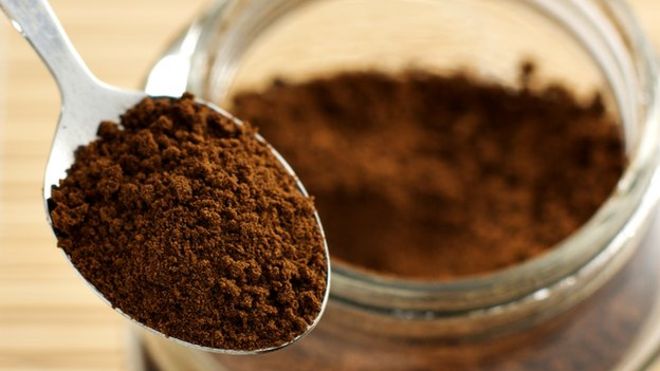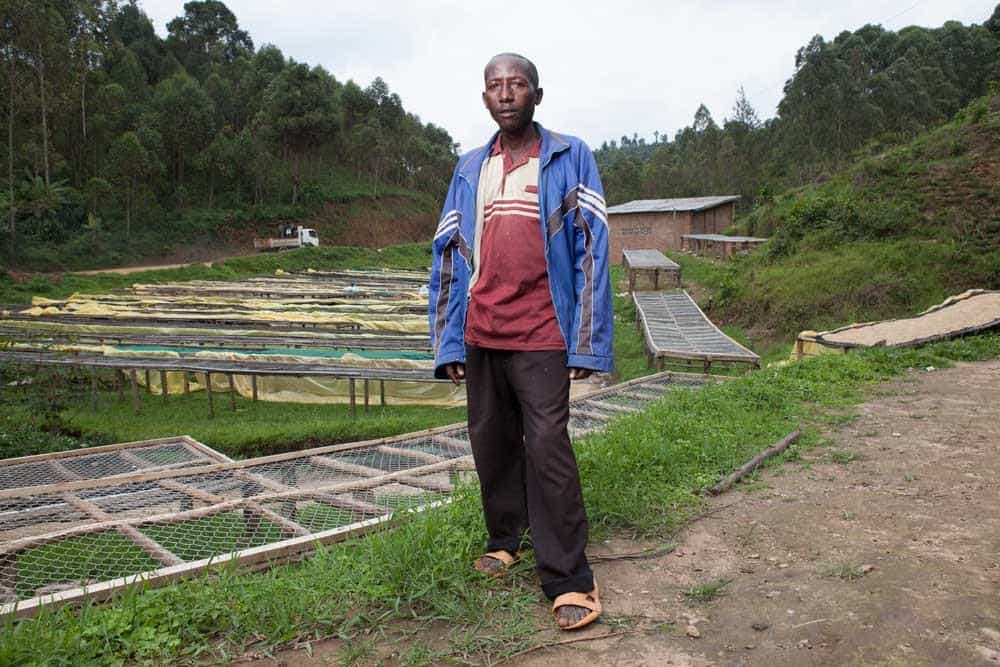Finca Bosque Lya is situated in the municipality of Santa Ana on the foothills of the Santa Ana Volcano in the Apaneca Mountain range of western El Salvador. The farm was established in 1932 when Gustavo Vides Valdes named his property in honour of his newly born daughter, Lya. The farm name Bosque Lya translates to Lya's forest.
This beautiful coffee has a huge amount of character in the cup, with great depth of flavour and floral tones.

Flavour Profile of El Salvador Bosque Lya
Ripe red cherries are handpicked between January and March and taken to a collection point to be hand-sorted by pickers before being taken to the El Borbollon mill.
On arrival, the cherries are emptied into separate tanks for different lots from farms around the region. Water is used to move the cherries up a pump and into a Pacas' depulper (of El Salvadorian origin) which works using a cylinder pushing against a metal wall to remove the skin of the cherry from the beans.

The pulped cherry is composted with calcium and then re-distributed between farmers using the mill as fertiliser for the next harvest. The sticky beans are then moved in channels to fermentation tanks where they will rest for 13 to 15 hours and naturally present bacteria and microbes break down the sugars and alcohols in the mucilage of the bean.
The fermented beans are then moved to a washing machine where fresh water is used to remove any remaining mucilage and prepare the beans for the drying patios.
All water is recycled and is used to move fresh cherries around the wet mill. The washed beans are then taken to the drying patios and kept separate by lot.

They will dry there for around 8-10 days, though El Borbollon is experimenting with extending drying periods by laying the beans densely and covering them for parts of the day. It is believed that extending the drying time will result in more complex nuances in the cup.
The dried parchment is then left to rest for around a month and a half before being hulled to remove the parchment. Once hulled, the beans are hand sorted by a group of around 40 women who remove any defects.

Coffee Grown in El Salvador
Bourbon is the most prevalent variety on the farm mainly red though but there is a little orange and yellow too - though there are many other varieties grown for experimentation and diversity, including Pacamara, Caturra, and Typica.

An altitude range of 1,473 to 1,650 metres above sea level brings about coffees of great complexity that are sweet and lively with nuances of berries, tea rose and dark fruit, such as plums. There is a little chocolate on the finish too.
Rounton Coffee Roasters
Rounton Coffee Roasters is run by a very small team _x0097_ two Daves, Guy, and Tom. Those four together make magic behind the scenes with all the flavour profiles they create.
Dave Beattie (Dave #1), who also founded the company makes sure things all run smoothly behind the scenes.

Dave Burton (Dave #2) takes care of sourcing green coffee and working with their wholesale accounts. He also does some of the production roastings as well.
You will mostly find him at The Granary in front of the 10kg Toper, roasting away.
Guy roasts the majority of the coffee and is in charge of quality control. From time to time, you will also find Tom roasting the coffee, but he also runs the Barista Skills Course for all of their wholesale accounts.
If you are interested in this course, they've also opened it up to the public. Tom also takes care of the social media and marketing for Rounton Coffee Roasters.
Try This Coffee in Your Next Blue Coffee Box
To experience full flavoured coffees like the El Salvador Bosque Lya blend, be sure and sign up for a
Blue Coffee Box Subscription. Click for more details and to find out how you can get your first box.

 The pulped cherry is composted with calcium and then re-distributed between farmers using the mill as fertiliser for the next harvest. The sticky beans are then moved in channels to fermentation tanks where they will rest for 13 to 15 hours and naturally present bacteria and microbes break down the sugars and alcohols in the mucilage of the bean.
The fermented beans are then moved to a washing machine where fresh water is used to remove any remaining mucilage and prepare the beans for the drying patios.
All water is recycled and is used to move fresh cherries around the wet mill. The washed beans are then taken to the drying patios and kept separate by lot.
The pulped cherry is composted with calcium and then re-distributed between farmers using the mill as fertiliser for the next harvest. The sticky beans are then moved in channels to fermentation tanks where they will rest for 13 to 15 hours and naturally present bacteria and microbes break down the sugars and alcohols in the mucilage of the bean.
The fermented beans are then moved to a washing machine where fresh water is used to remove any remaining mucilage and prepare the beans for the drying patios.
All water is recycled and is used to move fresh cherries around the wet mill. The washed beans are then taken to the drying patios and kept separate by lot.
 They will dry there for around 8-10 days, though El Borbollon is experimenting with extending drying periods by laying the beans densely and covering them for parts of the day. It is believed that extending the drying time will result in more complex nuances in the cup.
The dried parchment is then left to rest for around a month and a half before being hulled to remove the parchment. Once hulled, the beans are hand sorted by a group of around 40 women who remove any defects.
They will dry there for around 8-10 days, though El Borbollon is experimenting with extending drying periods by laying the beans densely and covering them for parts of the day. It is believed that extending the drying time will result in more complex nuances in the cup.
The dried parchment is then left to rest for around a month and a half before being hulled to remove the parchment. Once hulled, the beans are hand sorted by a group of around 40 women who remove any defects.

 An altitude range of 1,473 to 1,650 metres above sea level brings about coffees of great complexity that are sweet and lively with nuances of berries, tea rose and dark fruit, such as plums. There is a little chocolate on the finish too.
An altitude range of 1,473 to 1,650 metres above sea level brings about coffees of great complexity that are sweet and lively with nuances of berries, tea rose and dark fruit, such as plums. There is a little chocolate on the finish too.
 Dave Burton (Dave #2) takes care of sourcing green coffee and working with their wholesale accounts. He also does some of the production roastings as well.
You will mostly find him at The Granary in front of the 10kg Toper, roasting away.
Guy roasts the majority of the coffee and is in charge of quality control. From time to time, you will also find Tom roasting the coffee, but he also runs the Barista Skills Course for all of their wholesale accounts.
If you are interested in this course, they've also opened it up to the public. Tom also takes care of the social media and marketing for Rounton Coffee Roasters.
Dave Burton (Dave #2) takes care of sourcing green coffee and working with their wholesale accounts. He also does some of the production roastings as well.
You will mostly find him at The Granary in front of the 10kg Toper, roasting away.
Guy roasts the majority of the coffee and is in charge of quality control. From time to time, you will also find Tom roasting the coffee, but he also runs the Barista Skills Course for all of their wholesale accounts.
If you are interested in this course, they've also opened it up to the public. Tom also takes care of the social media and marketing for Rounton Coffee Roasters.


